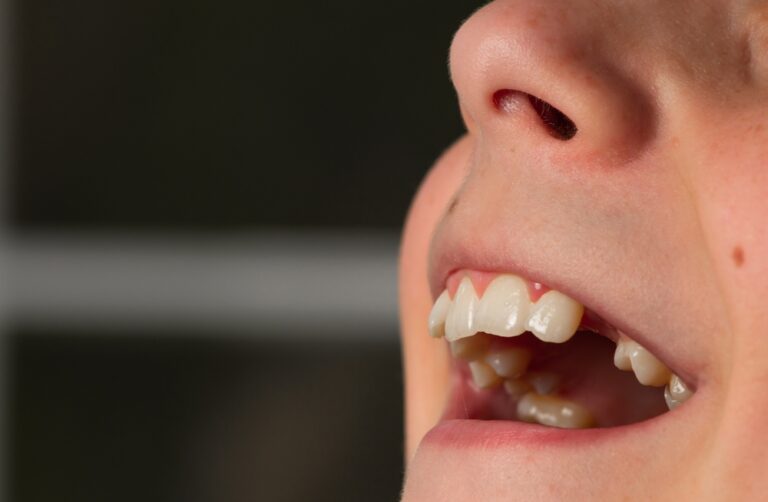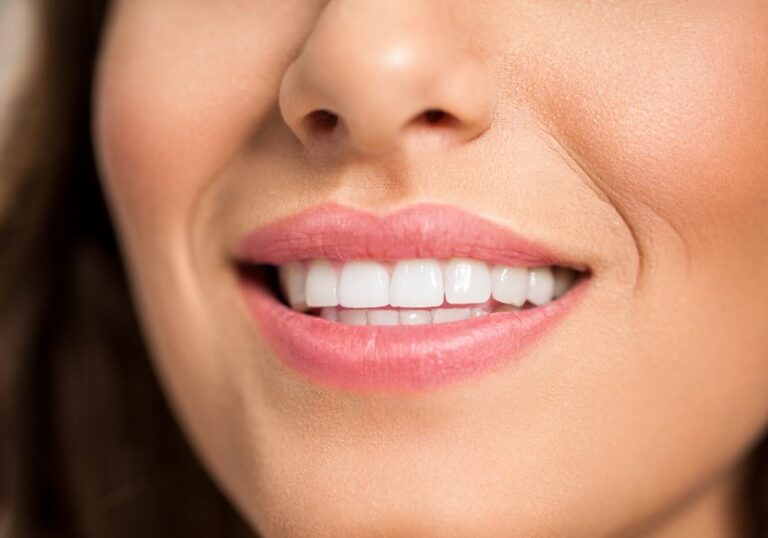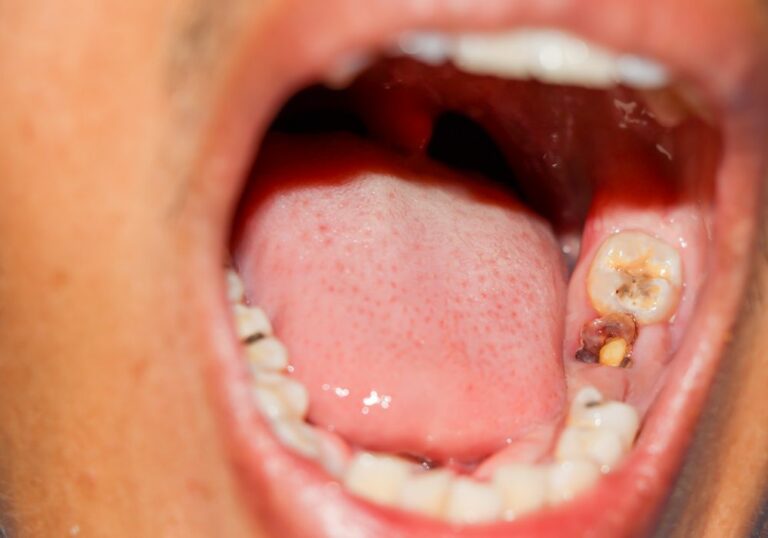If you’ve recently had your wisdom teeth removed, you’re probably wondering when you can start eating normally again. Wisdom tooth extraction is a common procedure, but the recovery process can be uncomfortable and take some time. Eating the right foods and avoiding certain ones can help speed up the healing process and reduce the risk of complications.
The amount of time it takes to start eating normally after wisdom teeth extraction can vary depending on a few factors. Generally, you should stick to a soft food diet for the first few days after surgery. This includes foods like smoothies, soups, applesauce, and mashed potatoes. You should avoid crunchy, hard, or sticky foods that can irritate the surgical site or get stuck in the sockets. After a few days, you can gradually start introducing more solid foods back into your diet as long as they are soft and easy to chew.
Understanding Wisdom Teeth Extraction
What is Wisdom Teeth Extraction?
Wisdom teeth extraction is a surgical procedure that involves removing one or more of the four wisdom teeth, which are the last set of molars that emerge at the back of your mouth. Wisdom teeth extraction is typically done by an oral surgeon or a dentist, and it can be performed under local or general anesthesia.
Why is it Done?
There are several reasons why you might need to have your wisdom teeth extracted. Here are some of the most common reasons:
- Impacted Wisdom Teeth: If your wisdom teeth don’t have enough space to grow properly, they can become impacted, which means they get stuck in your jawbone. Impacted wisdom teeth can cause pain, swelling, and infection.
- Crowded Teeth: If your mouth is too small to accommodate your wisdom teeth, they can push against your other teeth and cause crowding. Crowded teeth can lead to tooth decay, gum disease, and other oral health problems.
- Tooth Decay: Wisdom teeth are more prone to tooth decay than other teeth because they are harder to clean. If your wisdom teeth develop cavities, they may need to be extracted.
- Gum Disease: Wisdom teeth can also cause gum disease if they are difficult to clean. Gum disease can lead to tooth loss and other serious health problems.
In the next section, we will discuss how long it takes to recover from wisdom teeth extraction and when you can start eating normally again.
Post-Extraction Period
After getting your wisdom teeth extracted, you will need to be careful with what you eat for a while. During the post-extraction period, you need to be mindful of what you consume to avoid any complications that may arise. Here are some things you need to keep in mind during the post-extraction period.
Immediate Aftermath
After the extraction, you will need to bite down on a piece of gauze for about 30-45 minutes to help stop the bleeding. Once the bleeding has stopped, you can remove the gauze. You may feel some pain and swelling, which is normal. You can use an ice pack to reduce the swelling, but make sure to keep it on for no more than 20 minutes at a time.
First 24 Hours
For the first 24 hours after the extraction, it is essential to avoid consuming hot or hard meals such as burgers, hot soup, tea, and so on. Instead, stick to soft, cold foods like smoothies, applesauce, yogurt, and ice cream. You should also avoid using straws, as the sucking motion can dislodge the blood clot and delay the healing process.
Here are some foods that you can eat during the first 24 hours after your wisdom teeth extraction:
- Smoothies
- Applesauce
- Yogurt
- Mashed Potatoes
- Scrambled Eggs
- Broth-based Soups
- Ice cream
Make sure to drink plenty of water and stay hydrated. You can also take over-the-counter pain medication to help with any discomfort. However, make sure to follow the instructions on the label and not exceed the recommended dosage.
By following these guidelines, you can ensure a smooth and speedy recovery after your wisdom teeth extraction. Remember to be patient and take it easy for a few days, and you’ll be back to eating normally in no time.
Healing Process
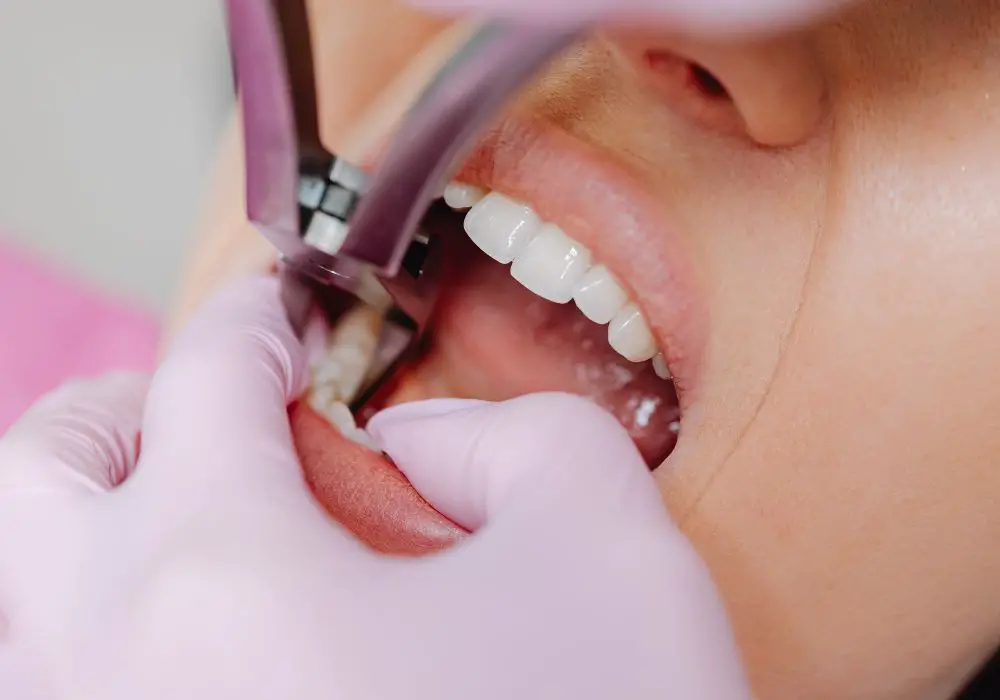
After wisdom teeth extraction, it’s normal to experience some discomfort and pain. The healing process is different for everyone, but generally, it takes about two weeks to fully recover. During this time, it’s important to take care of yourself and follow your dentist’s instructions to ensure a smooth recovery.
First Week
During the first week, you should rest as much as possible and avoid any strenuous physical activity. You may experience some swelling and discomfort, but this can be managed with pain medication prescribed by your dentist. You should also avoid using a straw or smoking, as the suction can dislodge the blood clot and delay the healing process.
In terms of diet, you should stick to soft foods that are easy to chew and swallow. This includes soups, smoothies, mashed potatoes, and scrambled eggs. Avoid hot, spicy, or acidic foods, as they can irritate the extraction site. It’s also important to stay hydrated by drinking plenty of water and other non-carbonated beverages.
Second Week and Beyond
By the second week, you should start feeling better and the swelling should start to subside. You may still experience some discomfort, but this can be managed with over-the-counter pain medication. You can also start introducing solid foods back into your diet, but be sure to chew on the opposite side of your mouth to avoid irritating the extraction site.
It’s important to continue practicing good oral hygiene during the healing process. You should brush your teeth gently and avoid the extraction site, and rinse your mouth with salt water or a prescribed mouthwash to keep the area clean. Your dentist may also recommend follow-up appointments to monitor your progress and ensure that the extraction site is healing properly.
In summary, the healing process after wisdom teeth extraction can be uncomfortable, but by taking care of yourself and following your dentist’s instructions, you can ensure a smooth recovery. Stick to soft foods during the first week, avoid using a straw or smoking, and practice good oral hygiene to promote healing. By the second week, you can start introducing solid foods back into your diet and should continue to monitor your progress with follow-up appointments.
Dietary Changes
After wisdom teeth extraction, your diet will need to be modified to ensure proper healing and avoid complications. Here are some guidelines to follow:
Initial Soft Food Diet
For the first 24 to 48 hours after your wisdom teeth extraction, you should only consume soft foods and liquids. This will help to prevent irritation or infection at the extraction site. Here are some soft foods to consider:
- Smoothies or protein shakes
- Mashed potatoes or sweet potatoes
- Applesauce or mashed bananas
- Scrambled eggs or omelets
- Yogurt or pudding
Avoid foods that are crunchy, spicy, or acidic, as they can cause discomfort or irritation. Also, avoid using straws, as the suction can dislodge the blood clot and delay healing.
Transition to Normal Diet
After the first few days, you can gradually start to reintroduce solid foods into your diet. However, it’s important to take it slow and avoid anything too hard or crunchy. Here are some tips for transitioning to a normal diet:
- Start with soft foods like pasta or cooked vegetables
- Chew on the opposite side of your mouth from the extraction site
- Cut your food into small pieces to make it easier to chew
- Avoid foods that are too hot or too cold, as they can be painful
It’s important to listen to your body and avoid any foods that cause discomfort or pain. If you experience any swelling, bleeding, or severe pain, contact your dentist or oral surgeon right away.
Potential Complications
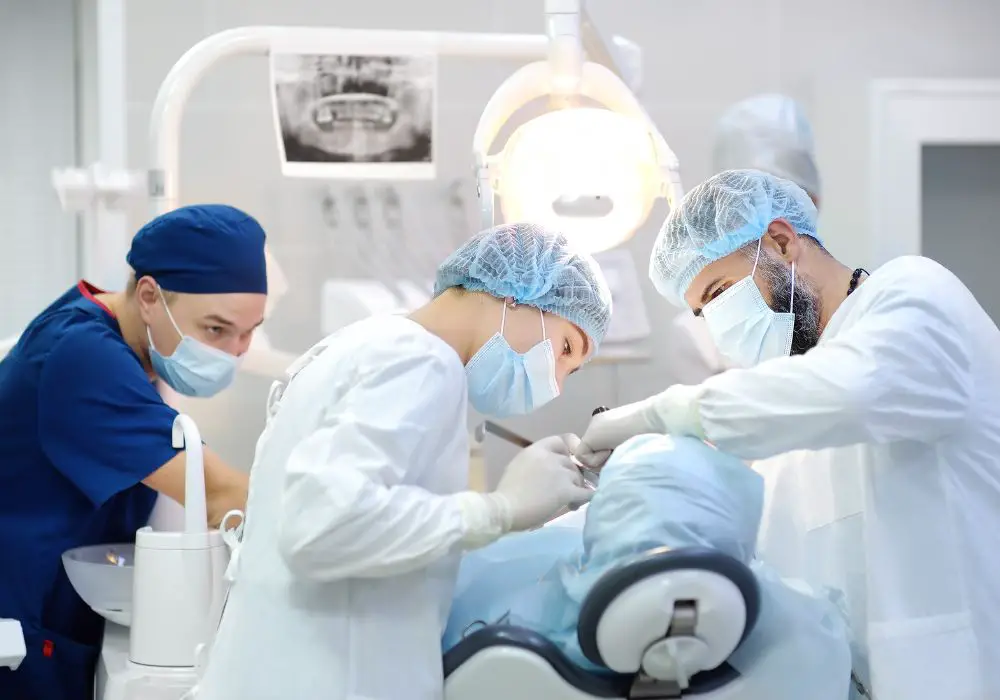
After wisdom teeth extraction, it is common to experience some discomfort and swelling. However, in rare cases, complications may arise. Here are two potential complications that you should be aware of:
Dry Socket
Dry socket is a condition that occurs when the blood clot that forms in the tooth socket after extraction becomes dislodged or dissolves before the wound has completely healed. This can expose the underlying bone and nerves, causing severe pain and discomfort.
Symptoms of dry socket include intense pain, bad breath, and an unpleasant taste in your mouth. If you suspect that you have dry socket, contact your dentist or oral surgeon immediately. They may prescribe pain medication or recommend a medicated dressing to help alleviate the pain and promote healing.
To prevent dry socket, avoid smoking, using straws, and rinsing your mouth vigorously for the first few days after extraction. Stick to soft foods and avoid crunchy or hard foods that could dislodge the blood clot.
Infection
Infection is another potential complication of wisdom teeth extraction. If bacteria enter the extraction site, it can cause swelling, pain, and fever. In severe cases, it can lead to abscesses or osteomyelitis, a bone infection.
To prevent infection, follow your dentist or oral surgeon’s instructions for post-operative care. This may include taking antibiotics, rinsing your mouth with saltwater, and avoiding certain foods and activities.
If you suspect that you have an infection, contact your dentist or oral surgeon immediately. They may prescribe antibiotics or recommend additional treatment to prevent the infection from spreading.
Remember, while complications are rare, it is important to be aware of the potential risks associated with wisdom teeth extraction. By following your dentist or oral surgeon’s instructions for post-operative care, you can help minimize your risk of complications and ensure a smooth recovery.
Tips for a Smooth Recovery
Recovering from wisdom teeth extraction can be uncomfortable, but there are steps you can take to make the process smoother. Here are some tips to help you have a more comfortable recovery:
1. Follow Your Dentist’s Instructions
Your dentist will provide you with specific instructions for your recovery, including when you can eat solid foods again. It’s important to follow these instructions closely to ensure a smooth recovery.
2. Stick to Soft Foods
For the first few days after your extraction, you should stick to soft foods that won’t irritate the extraction site. Some good options include:
- Blended soups
- Smoothies
- Mashed potatoes
- Yogurt
- Applesauce
Avoid hard, crunchy, or sticky foods that can get stuck in the extraction site and cause irritation.
3. Stay Hydrated
Drinking plenty of water is important for a smooth recovery. It can help flush out any food particles or bacteria that may be lingering in your mouth and keep you hydrated.
4. Use Ice Packs
Applying ice packs to your cheeks can help reduce swelling and discomfort. You can use a cold compress or a bag of frozen peas wrapped in a towel.
5. Avoid Smoking and Drinking Alcohol
Smoking and drinking alcohol can slow down the healing process and increase your risk of complications. It’s best to avoid these activities until your dentist gives you the green light.
6. Take Pain Medication as Directed
Your dentist may prescribe pain medication to help manage any discomfort you experience after the extraction. Be sure to take the medication as directed and don’t exceed the recommended dosage.
By following these tips, you can help ensure a smooth recovery after your wisdom teeth extraction.

Frequently Asked Questions
When can I eat solid food after wisdom teeth extraction?
After wisdom teeth extraction, it is best to stick to soft foods for the first few days. You can start eating solid foods when you feel comfortable doing so, usually around the fifth day after the surgery. However, make sure to avoid hard, crunchy, or sticky foods that could irritate the wound or dislodge the blood clot.
Can I eat bread after wisdom teeth removal?
You should avoid eating bread for the first few days after wisdom teeth removal. Bread can be too hard and require too much chewing, which can cause discomfort and irritation to the extraction site. Instead, stick to soft foods like smoothies, soups, and mashed potatoes.
What can I eat on the fifth day after wisdom teeth removal?
By the fifth day after wisdom teeth removal, you can start eating a wider variety of foods, including soft fruits, cooked vegetables, and well-cooked meats. However, make sure to avoid hard, crunchy, or sticky foods that could damage the extraction site or cause discomfort.
How long does it take to heal after wisdom teeth extraction?
The healing process after wisdom teeth extraction can take up to two weeks. During this time, it is important to follow your dentist’s instructions and avoid hard, crunchy, or sticky foods that could damage the extraction site. You should also rinse your mouth with saltwater regularly to help prevent infection.
When can I eat chicken after wisdom teeth removal?
You can start eating chicken again around the fifth day after wisdom teeth removal, as long as it is well-cooked and cut into small pieces. Make sure to avoid any hard or crunchy parts of the chicken that could irritate the extraction site.
Is it safe to eat ice cream after wisdom teeth extraction?
Ice cream can be a good option after wisdom teeth extraction, as it is soft and can help soothe the area. However, make sure to avoid flavors with nuts, candy pieces, or crunchy toppings that could damage the extraction site. Stick to smooth and creamy flavors like vanilla or chocolate.



